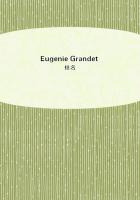Nor are you to think me so sensitive to what your Bishops in IC or in AC may say of me. I have the lot of all actors who play in public; applauded by some, despised by others. One must prepare oneself for satires, for calumnies, for a multitude of lies, which will be sent abroad into currency against one: but need that trouble my tranquillity? I go my road; I do nothing against the interior voice of my conscience; and I concern myself very little in what way my actions paint themselves in the brain of beings, not always very thinking, with two legs and without feathers."["Schmottseifen, 18th July, 1759;" <italic> OEuvres de Frederic, <end italic> xxiii. 55, 56.]
AT WILSDRUF, JUST BEFORE MAXEN (an exultant exuberant curious Letter; too long for insertion,--part of it given above). ...
"For your Tragedy of SOCRATE, thanks. At Paris they are going to burn it, the wretched fools,--not aware that absurd fanaticism is their dominant vice. Better burn the dose of medicine, however, than the useful Doctor. I, can I join myself to that set? If I bite you, as you complain, it is without my knowledge. But I am surrounded with enemies, one hitting me, another pricking me, another daubing me with mud;--patience at last yields, and one flies abroad into a general rage, too indiscriminate perhaps."You talk of my Verses on Rossbach (my ADIEU TO THE HOOPERS on finding their Bridge burnt [Supra, p. 21.]). "This Campaign I have had no beatific vision, in the style of Moses. The barbarous Cossacks and Tartars, infamous to look at on any side, have burnt and ravaged countries, and committed atrocious inhumanities.
This is all I saw of THEM. Such melancholy spectacles don't tend to raise one's spirits. [Breaks off into metre:] LA FORTUNEINCONSTANTE ET FIERE, Fortune inconstant and proud. Does not treat her suitors Always in an equal manner. Those fools called heroes, who run the country, <italic> Ces fous nommes heros, et qui courent les champs, Couverts de sang et de poussiere, Voltaire, n'ont pas tous les ans La faceur de voir le derriere De leurs ennemis insolents. <end italic>
Can't expect that pleasure every year"! ...
Maupertuis, say you? "Don't trouble the ashes of the dead; let the grave at least put an end to your unjust hatreds. Reflect that even Kings make peace after long battling; cannot you ever make it?
I think you would be capable, like Orpheus, of descending to Hell, not to soften Pluto and bring back your beautiful Emilie, but to pursue into that Abode of Woe an enemy whom your wrath has only too much persecuted in the world: for shame!" [<italic> OEuvres de Frederic, <end italic> xxiii. 61-65 ("Wilsdruf, 17th November, 1759").]--and rebukes him, more than once elsewhere, in very serious terms.
IN WINTER-QUARTERS, ON PEACE AND THE STOLEN EDITION. (Starts in verse, which we abridge:) With how many laurels you have covered yourself in all the fields of Literature! One laurel yet is wanting to the brow of Voltaire. If, as the crown of so many perfect works, he could by a skilful manoeuvre bring back Peace, I, and Europe with me, would think that his masterpiece! [Takes to prose:]
"This is my thought and all Europe's. Virgil made as fine Verses as you; but he never made a Peace. It will be a distinction you will have over all your brethren of Parnassus, if you succeed.
"I know not who has betrayed me, and thought of printing [the EDITION;--not you, surely!] a pack of rhapsodies which were good enough to amuse myself, but were never meant for publication.
After all, I am so used to treacheries and bad manoeuvres,"--what matters this insignificant one?
"I know not who the Bredow is [whom you speak of having met];but he has told you true. The sword and death have made frightful ravages among us. And the worst is, we are not yet at the end of the tragedy. You may judge what effect these cruel shocks made on me. I wrap myself in my stoicism, the best I can. Flesh and blood revolt against such tyrannous command; but it must be followed.
If you saw me, you would scarcely know me again: I am old, broken, gray-headed, wrinkled; I am losing my teeth and my gayety: if this go on, there will be nothing of me left, but the mania of ****** verses, and an inviolable attachment to my duties and to the few virtuous men whom I know." [<italic> OEuvres de Frederic, <end italic> xxiii. 69 ("Freyberg, 24th Feb. 1760").]
IN WINTER-QUARTERS, A MONTH LATER (comes still on "Peace" again).
... "I will have you paid that bit of debt [perhaps of postage or the like], that Louis of the Mill (Louis du Moulin," at Fontenoy, who got upon a Windmill with his Dauphin, and caught that nickname from the common men) "may have wherewithal to make war on me.
Add tenth-penny tax to your tax of twentieth-penny; impose new capitations, make titular offices to get money; do, in a word, whatever you like. In spite of all your efforts, you will not get a Peace signed by my hands, except on conditions honorable to my Nation. Your people, blown up with self-conceit and folly, may depend on these words. Adieu, live happy; and while you make all your efforts to destroy Prussia, think that nobody has less deserved it than I, either of you or of your French." [Ib. xxiii.
72 ("Freyberg, 20th March, 1760").]
STILL IN WINTER-QUARTERS (on "Peace" still; but begins with "Maupertuis," which is all we will give). "What rage animates you against Maupertuis? You accuse HIM of having published that Furtive EDITION. Know that his Copy, well sealed by him, arrived here after his death, and that he was incapable of such an indiscretion.
[Breaks into verse:]
Leave in peace the cold ashes of Maupertuis:
Truth can defend him, and will.
His soul was faithful and noble:
He pardoned you that scandalous Akakia (CE VIL LIBELLEQUE VOTRE FUREUR CRIMINELLEPRIT SOIN CHEZ MOI DE GRIFFONER); he did:--And you? Shame on such delirium as Voltaire's!
What, this beautiful, what, this grand genius, Whom I admired with transport, Soils himself with calumny, and is ferocious on the dead?















